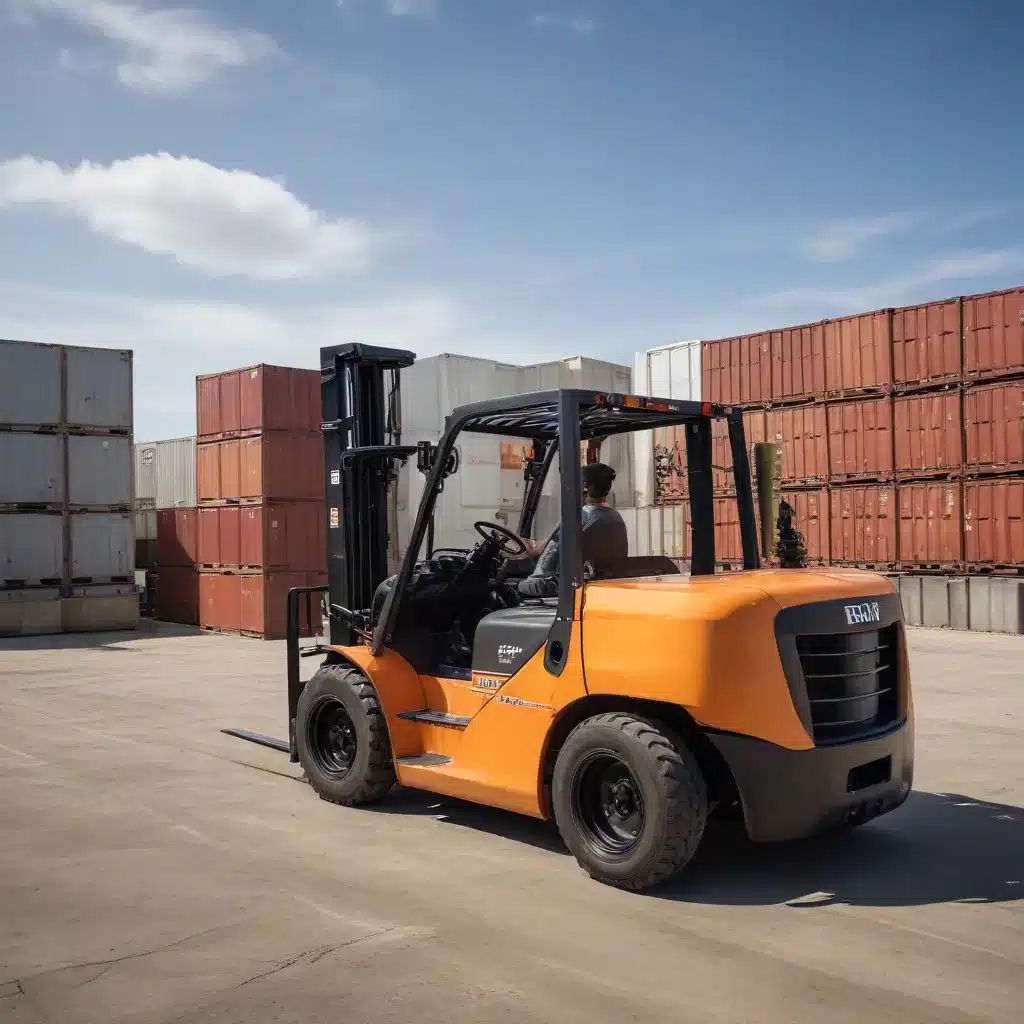
As the forklift industry continues to evolve, businesses are faced with a critical decision – whether to invest in traditional gas-powered models or embrace the growing trend of electric forklifts. This article will provide an in-depth exploration of the factors driving this shift, the benefits and drawbacks of each fuel type, and practical tips to help you navigate the changing landscape and make the most informed decision for your operation.
The Rise of Electric Forklifts
The growing emphasis on sustainability and environmental responsibility has been a significant catalyst for the increased adoption of electric forklifts. With a heightened awareness of the need to reduce carbon emissions and minimize the ecological footprint of operations, businesses are actively seeking solutions that align with their sustainability goals.
Electric forklifts, powered by renewable energy sources, are gaining traction as a viable alternative to traditional diesel and gas-powered models. Advancements in battery technology, such as fast-charging solutions and improved energy density, have been a game-changer, making electric forklifts a more practical and cost-effective option.
Key Benefits of Electric Forklifts:
- Reduced Carbon Footprint: Electric forklifts produce zero direct emissions, contributing to a cleaner, more sustainable work environment.
- Lower Operational Costs: The cost of electricity is generally lower than the cost of gasoline or diesel, leading to significant savings over the long term.
- Quieter Operation: Electric forklifts operate with minimal noise, creating a more comfortable and productive work atmosphere.
- Improved Maintenance: Electric forklifts have fewer moving parts, requiring less maintenance and reducing downtime.
Navigating the Fuel Efficiency Landscape
When it comes to forklift fuel efficiency, the choice between electric and gas-powered models can have a significant impact on your bottom line. To help you make an informed decision, let’s explore the key considerations:
Electric Forklifts
Battery Life and Charging Time: One of the primary concerns with electric forklifts is the battery life and charging time. However, recent advancements have addressed these issues. Many electric forklifts now offer opportunities for “opportunity charging,” allowing operators to recharge the batteries during breaks or downtime, maximizing the time the forklift can be in use.
Performance and Productivity: Contrary to popular belief, electric forklifts can match or even exceed the performance of their gas-powered counterparts. With improved motor technology and battery power, electric forklifts can handle heavy loads and provide the necessary power for demanding applications.
Maintenance and Upkeep: Electric forklifts require less maintenance compared to gas-powered models. The lack of an internal combustion engine, fewer moving parts, and the absence of oil changes and fuel filters contribute to lower maintenance costs and reduced downtime.
Gas-Powered Forklifts
Fuel Efficiency and Operating Costs: Traditional gas-powered forklifts have long been the industry standard, and for good reason. They often offer better fuel efficiency and lower operating costs than their electric counterparts, particularly for operations with high-intensity usage or extended runtime requirements.
Refueling Convenience: Gas-powered forklifts provide the convenience of quick refueling, allowing operators to get back to work without lengthy battery charging periods.
Suitability for Outdoor Use: Gas-powered forklifts are generally better suited for outdoor applications, as they can handle varying terrain and weather conditions more effectively than electric models.
Striking the Right Balance
When it comes to selecting the optimal forklift fuel type for your operation, there is no one-size-fits-all solution. The decision should be based on a careful analysis of your specific needs, operational requirements, and long-term business objectives.
To help you make the most informed choice, consider the following factors:
-
Workload and Usage Patterns: Evaluate the typical daily or weekly usage of your forklifts. If your operations require extended runtimes or high-intensity tasks, gas-powered models may be the more practical choice. Conversely, if your usage patterns are more intermittent or involve shorter shifts, electric forklifts may be the better fit.
-
Facility Layout and Environment: Consider the layout of your facility and the work environment. Electric forklifts may be better suited for indoor operations with well-defined spaces, while gas-powered models can handle outdoor terrain and varying weather conditions more effectively.
-
Sustainability and Environmental Goals: If your business is focused on reducing its carbon footprint and embracing sustainable practices, electric forklifts may be the preferred option, as they offer zero direct emissions and align with your sustainability objectives.
-
Total Cost of Ownership: While electric forklifts may have a higher upfront cost, the potential long-term savings in fuel and maintenance expenses should be carefully evaluated. Conduct a thorough cost-benefit analysis to determine the most financially viable option for your business.
-
Charging Infrastructure and Power Availability: Assess the availability and accessibility of charging stations or power sources within your facility. Ensure that your infrastructure can accommodate the needs of electric forklifts, including any necessary upgrades or installations.
Embracing the Future of Forklift Fuel Efficiency
As the forklift industry continues to evolve, it’s clear that both electric and gas-powered models have their respective strengths and weaknesses. By carefully evaluating your operational requirements, sustainability goals, and long-term cost considerations, you can make an informed decision that aligns with your business priorities and sets you up for success in the years to come.
At Forklift Reviews, we’re committed to providing the latest insights and practical guidance to help you navigate the forklift landscape. Whether you’re considering an investment in electric or gas-powered models, our team of industry experts is here to assist you in making the most informed choice for your business.
Reach out to us today to learn more about the evolving forklift fuel efficiency landscape and how you can optimize your material handling operations for the future.

